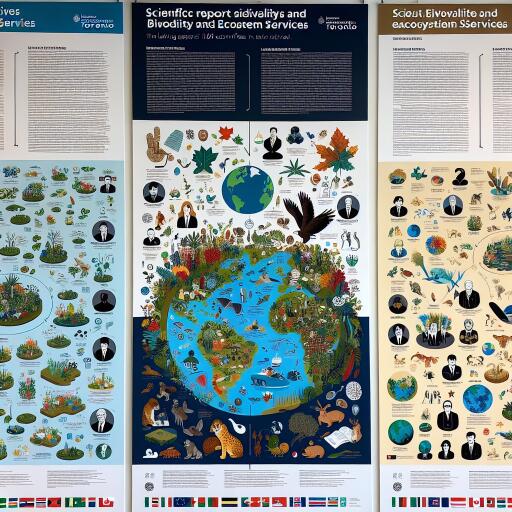
A Global Alarming Trend: Declining Biodiversity and Its Impacts on Human Well-being
In every corner of our planet, the diverse tapestry of life that sustains our existence is undergoing a relentless decline. Recent comprehensive scientific reviews unveiled a troubling narrative: biodiversity, the variety of life on Earth, is diminishing at an alarming rate, posing dire threats to economic stability, food security, health, and the overall quality of human life. These revelations stem from the exhaustive efforts of over 550 experts from more than 100 countries, under the auspices of the Intergovernmental Science-Policy Platform on Biodiversity and Ecosystem Services (IPBES), offering a mosaic of insights from the Americas, Asia and the Pacific, Africa, and Europe and Central Asia.
The integrity of biodiversity and the invaluable services ecosystems provide are foundational to human prosperity and survival. These include purifying our water, producing our food, and regulating our climate, among countless others. Despite their intrinsic value, human activities have pushed nature’s resilience to its brink, jeopardizing the very underpinnings of our civilizations and cultures. Against this backdrop, the message is clear: immediate, concerted action is essential to reverse this unsustainable trajectory.
Declining Biodiversity – A Global Synopsis
The Americas boast an enormous biodiversity that reinforces economies and supports livelihoods. However, the relentless exploitation and climate change are impairing nature’s ability to nurture and sustain life. Astonishingly, a ‘business as usual’ scenario could lead to a 40% loss in biodiversity by 2050, severely affecting the continent’s ability to meet its climate objectives and undermining its contributions to global food security.
In Africa, the rich natural heritage is a bastion of human development and well-being. Yet, it’s under siege by a myriad of forces, including climate change, which threatens to obliterate over half of African bird and mammal species by 2100, profoundly diminishing the continent’s biodiversity and its capacity to support its rapidly growing population.
The Asia-Pacific region, amidst its economic leap, faces unprecedented biodiversity losses, exacerbated by climate change, overfishing, pollution, and land-use change. The region stands on the precipice of ecological collapse, with predictions suggesting the potential for total depletion of exploitable fish stocks by 2048 if current practices persist.
In Europe and Central Asia, intensive agriculture and forestry have precipitated a dire biodiversity decline. Sustainable practices exist but are often overshadowed by prevailing unsustainable methods that prioritize short-term gains over long-term ecological health.
Pathways to a Sustainable Future
Despite the grim outlook, the reports offer glimmers of hope, accentuating viable policy routes and interventions proven to safeguard biodiversity and restore ecosystems. Strengthened governance, incorporating biodiversity into sectoral and economic policies, harnessing scientific knowledge and technology, and fostering global to local behavioral change are among the critical levers to halt and reverse ecological degradation.
The essence of these findings accentuates the interconnectedness of human and ecological well-being. Incorporating traditional knowledge systems, enhancing cross-border collaboration, and championing biodiversity in policy and development planning emerge as indispensable strategies. As humanity stands at a crossroads, the global community is tasked with an urgent mandate: to re-envision and forge a sustainable coexistence with nature.
Ultimately, the collective choices and actions taken today will dictate the legacy left for future generations. The moment for decisive action is now, to ensure the preservation and flourishing of Earth’s irreplaceable wealth for the sake of all forms of life that call it home.





Leave a Reply